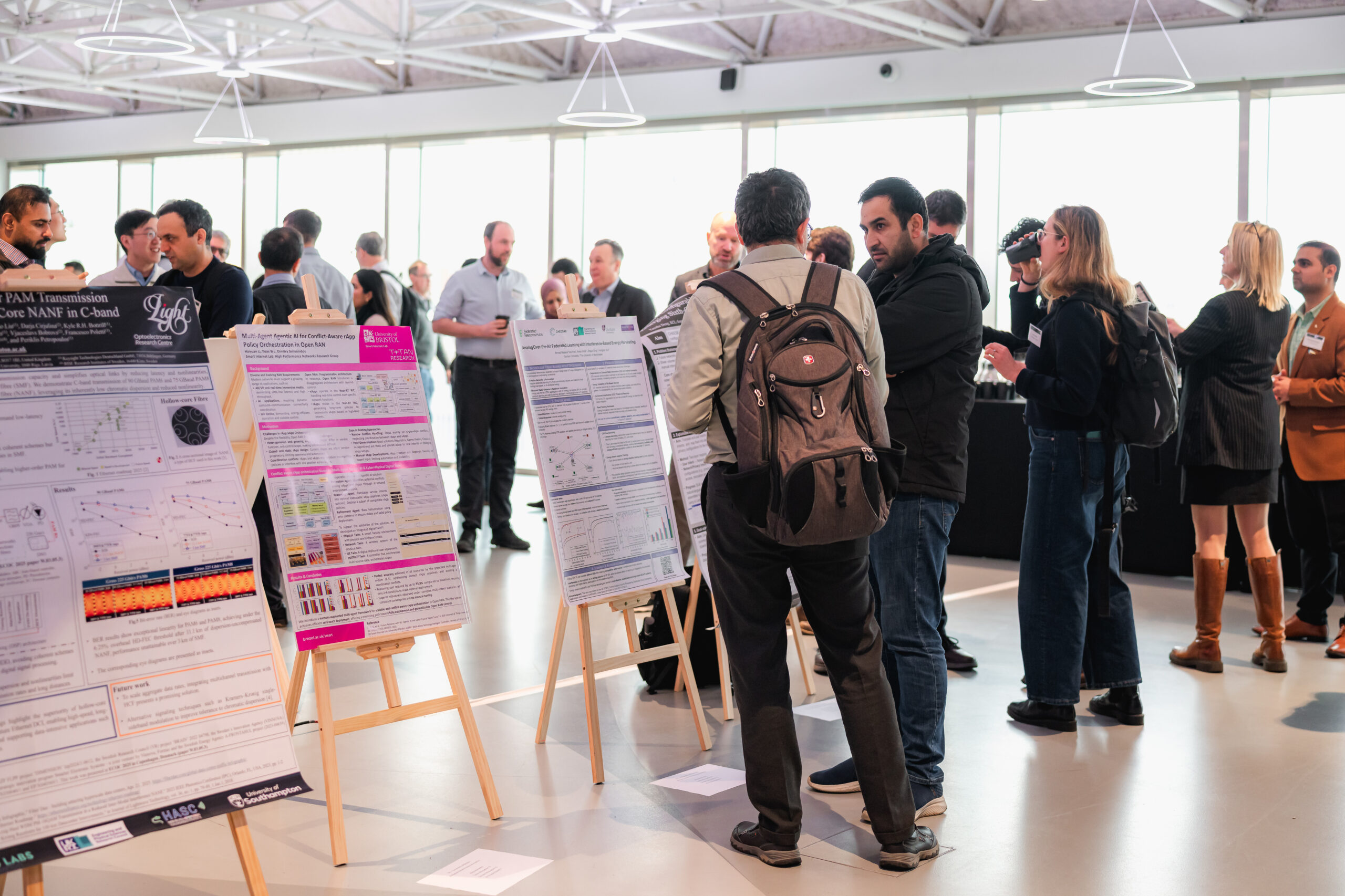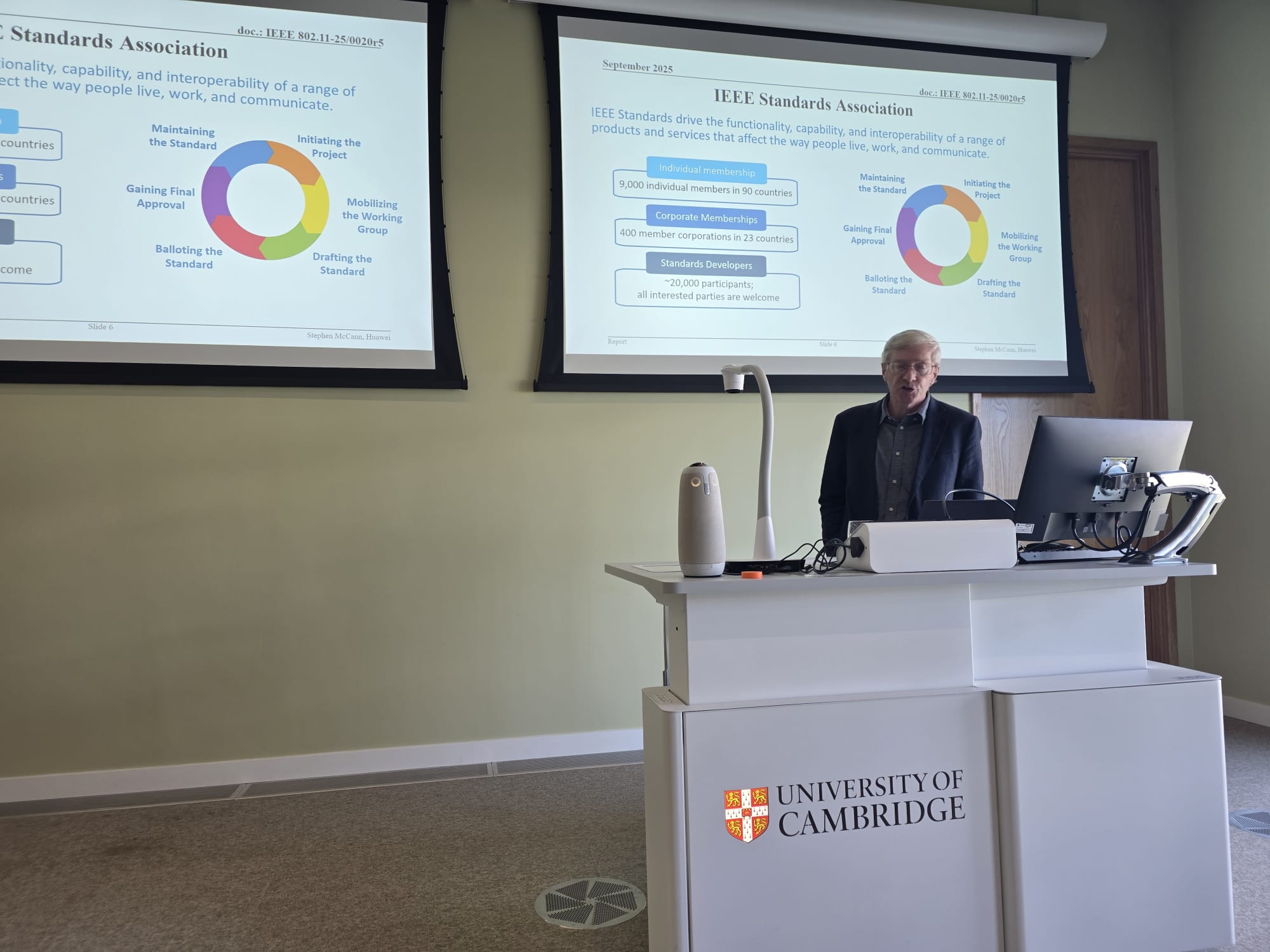At the International Bharat6G Conference 2025 (9-10 October 2025), held at the sidelines of the India Mobile Congress (IMC) 2025, FTH joined research alliances and partner nations to affirm our commitment to shaping the future of 6G wireless communication systems as a shared global endeavour.
FTH joins Bharat 6G, 6G IA, ATIS’ NextG Alliance, XGMF, 6G Forum, UKI-FNI, UKTIN, and 6G Flagship to recognise that 6G will serve as the connective fabric of the future digital economy, enabling intelligent networks and services, automation, and inclusion across all sectors of society.
By working together, we can ensure that 6G is secure, open, resilient, inclusive, affordable, and sustainable—a global public good that empowers every nation and citizen. Collaboration and cooperation are essential to addressing pressing challenges and maximising the opportunities available to the world for achieving our socio-economic and environmental goals.
We therefore declare our shared intention to align research, development, standardisation, and deployment around the following principles for 6G by design:
1. Trusted and Secure Technology
6G networks must be secure and trustworthy-by-design, ensuring resilience across hardware, software, and supply chains. Trusted ecosystems should safeguard national security and public safety, while protecting civil liberties and individual rights. Risk mitigation must address growing complexity, critical infrastructure dependence, and the rise of AI-native functions in telecom systems, with safeguards for data protection, transparency, and accountability across their lifecycle.
2. Resilience, Reliability, and Privacy
6G must deliver always-on availability with rapid recovery mechanisms, fail-safe design, and proactive resilience engineering to maintain services. Privacy-preserving architectures, cryptography, and responsible use of AI are essential to protect individuals, business and institutions. Networks must incorporate resilience at scale, handling billions of connected devices, agents, and workloads in real-time without compromising safety
3. Global, Transparent, and Inclusive Standardisation
Standards must be developed in open, transparent, impartial, and consensus-driven forums with equitable participation across nations, regions, and stakeholder groups. Technical specifications must promote interoperability, resilience, openness, and competition, and respect intellectual property rights while driving accessibility and innovation. ensure resilience, open participation by multiple providers and stakeholders is essential. Active collaboration is encouraged between international standard bodies (3GPP, ITU, IEEE) and innovation alliances (Bharat 6G, 6G IA, ATIS’ Next G Alliance, XGMF, 6G Forum, The EPSRC UK-India Future Networks Initiative- UKI-FNI, UK Federated Telecoms Hubs – CHEDDAR, HASC, JOINER and TITAN,UK TIN and 6G Flagship, etc.) while maintaining a transparent, inclusive, and trustworthy 6G standards process.
4. Open and Interoperable Innovation
6G must embrace open interfaces and multi-vendor interoperability across Terrestrial and Non-Terrestrial hardware, software, and cloud-native platforms. We support AI-enabled Radio Access Networks, software-defined networking, AI-native orchestration, and virtualisation as catalysts of innovation and flexibility. International collaboration on R&D, testbeds, and pilot deployments will accelerate breakthroughs in performance, security, and affordability.
5. Support for Commercial Use-Cases and Forward-Looking Business Models
6G must deliver superior commercial value by addressing valuable use-cases in an efficient and cost-effective manner. 6G should reduce capital and operating costs compared to previous generations. 6G should improve the delivery of use-cases already supported in 5G and also support sustainable and forward-looking business models by adding use cases that enhance the value of mobile networks to the broader economy.
6. Affordability, Sustainability, and Global Connectivity
6G deployments must be energy-efficient, repairable, and recyclable, advancing environmental goals and reducing carbon footprint. Solutions must remain affordable and accessible, leveraging economies of scale and innovative financing models to support social sustainability. 6G must bridge digital divides, delivering reliable and affordable coverage and consistent user experience across urban, rural, and remote regions. Networks must empower industries to reduce emissions and enable green digital transformation across sectors such as energy, manufacturing, health, utilities, agriculture, and transportation.
7. End-to-End Global Coverage: Terrestrial and Non-Terrestrial Integration
6G must provide seamless, ubiquitous connectivity across land, sea, air, and space, delivering near-universal global coverage. Integration of terrestrial infrastructure with satellites, High-Altitude Platforms (HAPS), UAVs, sub-sea and future space-based systems will ensure resilient, universal access. The goal is a ubiquitous Internet fabric that delivers a consistent experience from a farmer in a remote village to an airplane in flight to astronauts in orbit.
8. Spectrum, Compute, and Supply Chain Diversity
6G must use spectrum efficiently, incorporating dynamic sharing, spectrum aggregation, and AI-optimised allocation to serve diverse use cases. Networks must scale across the compute continuum from cloud to edge to device leveraging accelerators, GPUs, NPUs, TPUs and future quantum/neuromorphic systems. Open and resilient supply chains, with multiple software and hardware providers, are critical to a secure and competitive 6G ecosystem.
9. Skills Pipeline Development
The opportunities to highlight the Telecoms sector as a pathway for excellent employment prospects will be promoted. Understanding the future needs of the industry that will develop Future Networks will be central to develop the key skills in hardware, software and standards that will be needed to design, deploy, manage and secure the future of 6G and Terrestrial and Non-Terrestrial Integration.
Call to Action
We, Bharat 6G, 6G IA, ATIS’ NextG Alliance, XGMF, 6G Forum, UKTIN, and the EPSRC UK-India Future Networks Initiative – UKI-FNI call on all research alliances, industries, research institutions, and civil society stakeholders to join us in advancing these shared principles. By anchoring 6G in security, openness, resilience, inclusivity, affordability, sustainability, and trust, we commit to shaping a network fabric that uplifts societies, accelerates digital economies, and ensures no one is left behind.
At the International Bharat6G Symposium 2025 in New Delhi, this joint declaration marks a milestone: a unified global step toward making 6G the world’s first truly universal, trustworthy, and inclusive intelligent network.




